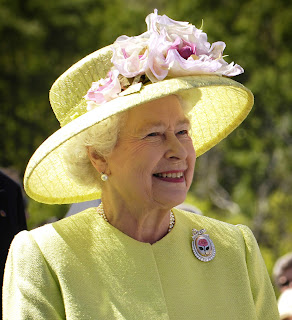This time of year seems to be about a last-minute dash for perfection as we hurtle towards the biggest party season of the year. I’m for ever amazed at how it always comes as such a surprise.
The date of Christmas, unlike Easter, is set in stone so I’m always curious as to why the mad rush as this particular Holy Day creeps up on us. How come we’re never ready? Is it that we’re so preoccupied with our day-to-day existence that we forget about it? No, I doubt that. After all, we plan other holidays in advance and look forward to our sunny trips abroad or change of scene at home. They usually get planned and booked before the big day.
So maybe we derive a certain pleasure in the drama of the rush. The amazement at the reoccurrence of the annual event, the sudden recognition that it’s upon us, the build-up and the expectation that it will be the same – or different – from what’s gone before.
I find it fascinating that we seem to experience the same set of emotions every year and I find it hard to fathom it out. Except perhaps what all this is doing is taking us back to childhood and giving us a taste of those blissful moments that many of us may remember. That magical moment we look back on with real affection. Oh, to be that all-hopeful child once again!
Back in the present, what we can do for our children is to try and give them the best experience of this beautiful time of the year so they can bank their own memories for their future. That might be one of the best presents they can ever receive. It’s a gift to hold onto, and to treasure.
For adults, it’s a bit trickier. Time may have made us all a little more cynical. The treats we requested from Father Christmas may be lost in the post, or in translation. Or we may perceive that all that work we’ve done – all that planning, all that loving and giving we’d wanted so much to offer – is not received with the graciousness and appreciation that we’d hoped for. What then? Put like that, it’s easy to imagine a toddler tantrum coming on in adult form.
If you’re feeling fraught and recognise any of these signs, may I offer a suggestion? How about allowing a little time for reflection?
Believers understand the importance of Christmas – the birth, the new hope, the farewell to what is past – and usually allow themselves a moment to consider what Christmas represents. But even if you celebrate the festivity for its own sake alone, this is a good time to stop and take stock.
I wonder if we come over all “rushing”, so that we don’t have to allow ourselves time to reflect. What might reflecting mean to us? Satisfaction, contentment, happiness or, on the other side of the coin, disappointment? It’s hard to work it out if we don’t give it some thought.
If we feel resistant to the idea of reflecting, why might that be? And if that feels too much like being about to go down a rabbit hole, consider that too. Remember a Monty Python sketch where one of the team kept explaining: “My brain hurts.” It can do when it’s trying to avoid looking at a question or finding an answer. Easier to put it to one side and wait for a time when you’re less busy. After Christmas maybe.
My challenge to you is to go there. Enjoy the ride/slide and see where it takes you. Rabbit holes may seem dark and all-enveloping but they are also tunnels, with entrances and exits, if only you have the concentration and determination to find the right direction for you.
I wrote recently about the loss of a close relative and this is the first Christmas we’ll be without her. It’ll be very strange and disparate. Even though she was not herself for some time, she was still in this world. Now, we’re all having to find ways of managing that loss. It’s surreal, as those of you who have been through a bereavement will understand.
Ironically, not one of the siblings are spending Christmas with another. Two are minding (different) cats, one’s settled at home (with their cats) and the other, the chief mourner, remains undecided about what to do or where to go. It’s a little unsettling.
On the plus side, a new baby was born this year into a family that already has a fascinating child. This new sibling has, from very small and slightly fragile beginnings, turned into a real chunky monkey with the most amazing charm and good nature, so different from others we might have known!
I’m discovering I’ll need to use different skills sets to learn how to incorporate a life-adjusting loss (with the sadness and stoicism that entails) with the delight and joy of watching a new person develop.
My aim is to celebrate the birth of the new baby while acknowledging that the person who has gone was also instrumental in that baby’s arrival.
That baby – and all other babies – are the product of their parents with all the characteristics – light and shade – of their ancestors.
And that’s where the similarities end. Ahead of each one lies a journey that belongs to no other, in which each can make their own individual and first hesitant steps. For my part, I am there to celebrate this year's new birth and make sure that family knows I’ll do what I can to help, if I'm needed.
On reflection, this sounds a good way to remember the meaning of Christmas and to celebrate it in the way it truly should be.



















